Not quite there.

Jesuit scholastics at Heythrop College, Oxfordshire in the 1960’s
Custody of the eyes.
Heythrop College, now Heythrop Park, lies about 20 miles north of Oxford. In the 1960’s it was a thriving theological Institute run by the Society of Jesus. It had a certain notoriety for being “advanced” in its thinking and teaching. Some staff members, though, stuck to tradition. To one of these, I am indebted for a phrase which repeatedly came back to me on the long pilgrimage I have undertaken this year from Javier in Navarre to Assisi in Italy. His name was Fr. Jack Diamond who was in charge of the young Jesuit students: their superior. In conformity with a counsel of the traditional Jesuit “rule”, known as “Custody of the eyes”, he used to tell off his students if they were indecorous in the huge long corridors. They were to walk calmly, in silence, with their eyes on the floor one coffin’s length in front of themselves.
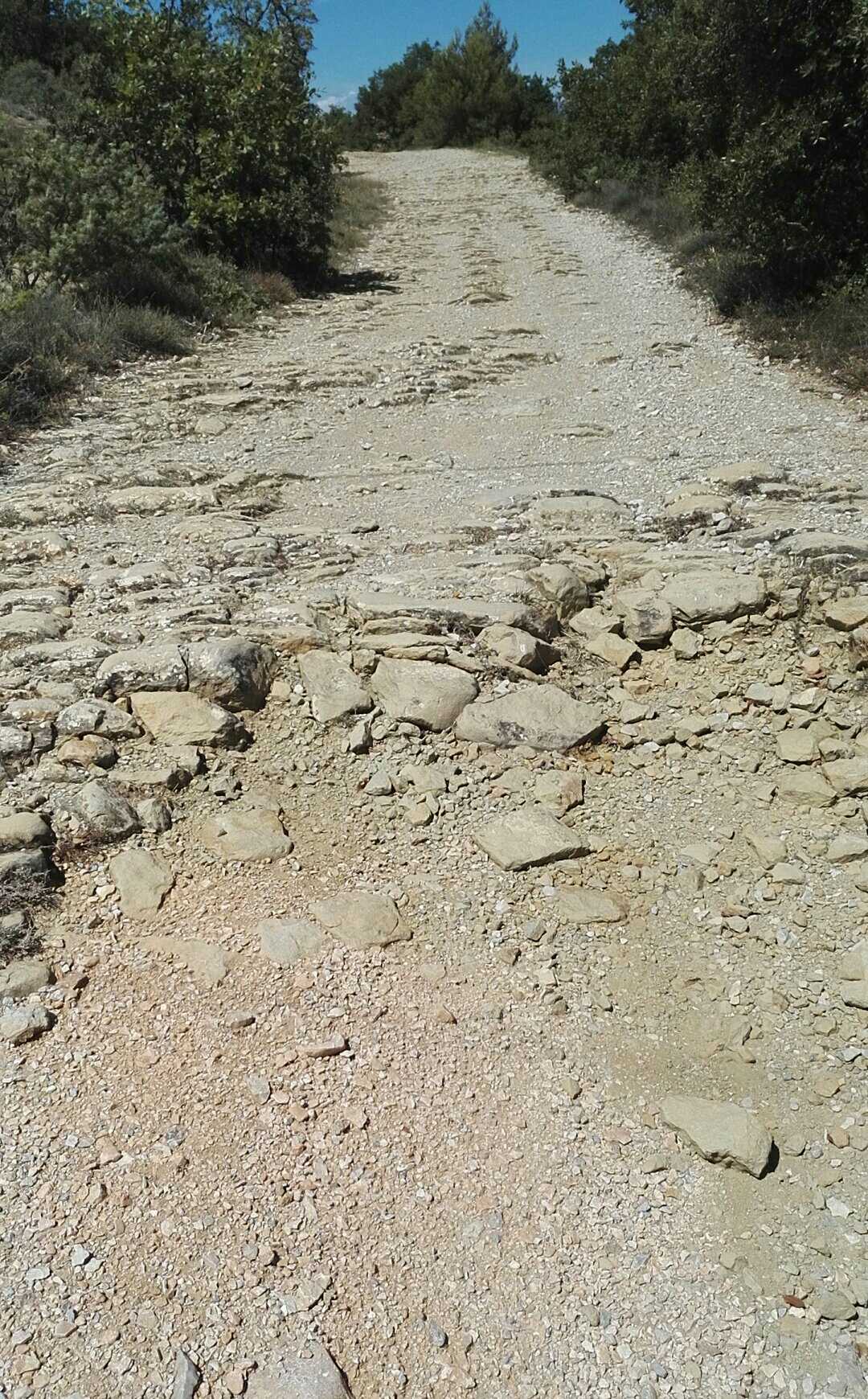
A coffin’s length and more
Mortality in view.
As a 20 year old, keeping my own mortality in focus would have been as difficult as staying celibate and so, as a young man I began to experience failure: but not disaster. When I look back on my pilgrimage this year, it, too, has had a fair sprinkling of failure, but not disaster. It began in February with the funeral of John Ashton at St. Aloysius’ church in Oxford. John, who had been a lecturer at Heythrop and a Fellow at Wolfson College, had chosen a poem to be read at his funeral. It was “One Art” by Elizabeth Bishop. It is here.
The poem begins:
The art of losing isn’t hard to master;
so many things seem filled with the intent
to be lost that their loss is no disaster.
Lose something every day. Accept the fluster
of lost door keys, the hour badly spent.
The art of losing isn’t hard to master.
Then practice losing farther, losing faster:
places, and names, and where it was you meant
to travel. None of these will bring disaster.
Failure but not a disaster.
A few days after John’s funeral I set off from Woking for Rome by bike. I fell off three times in three days injuring myself in the same tissue each time. I retired just before reaching Brighton, severely bruised and barely able to move for the following weeks. My pilgrimage by bike was a failure but not a disaster.
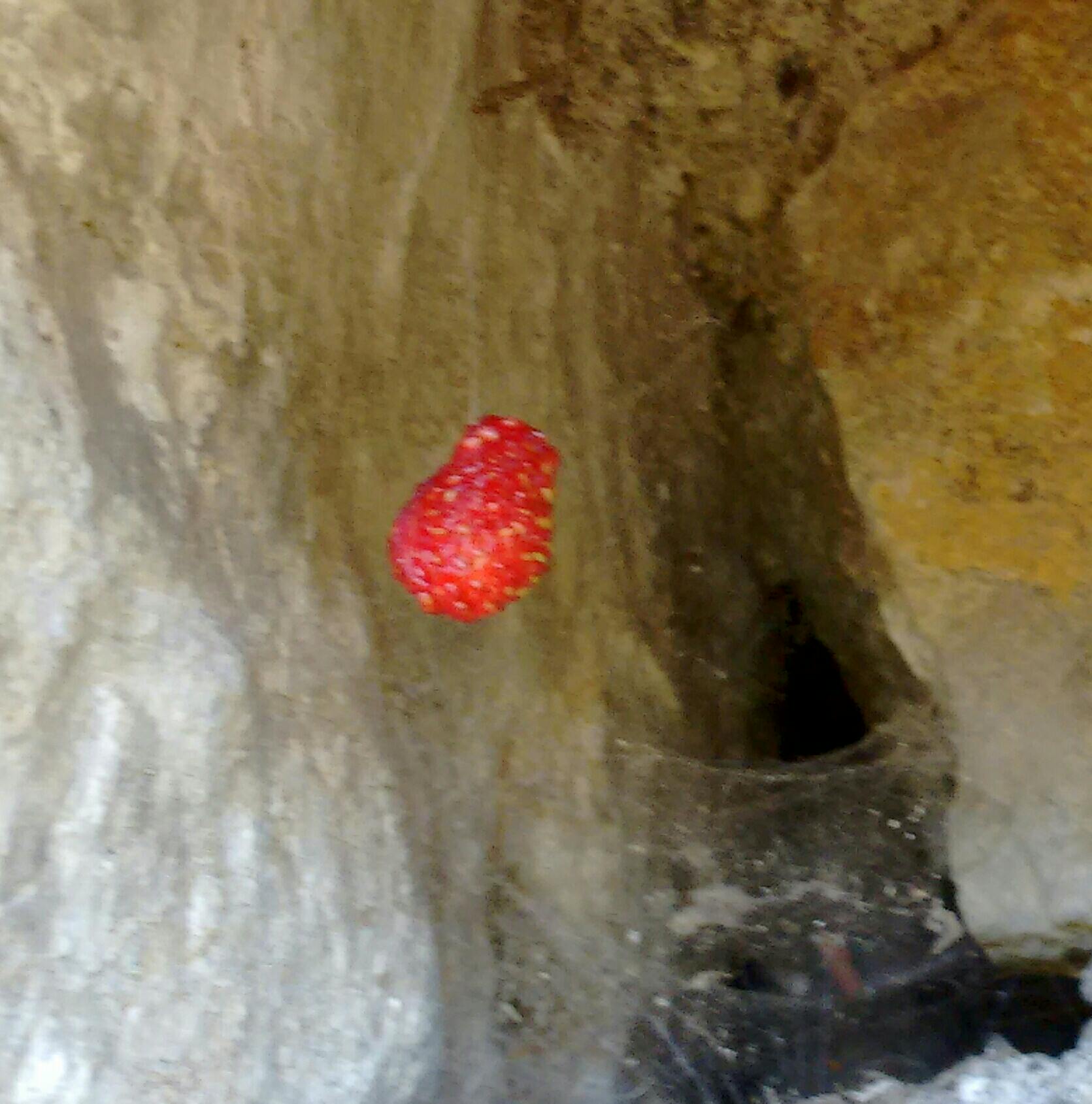
Wild strawberry
The wild strawberry.
When I did attempt the pilgrimage again in May, I went on foot. Before I had walked two weeks, I had lost two hats. The first was no disaster although it had a small flask of lavender oil in it when it went and the other was its new replacement. New or not I missed it but made do with makeshift turbans.
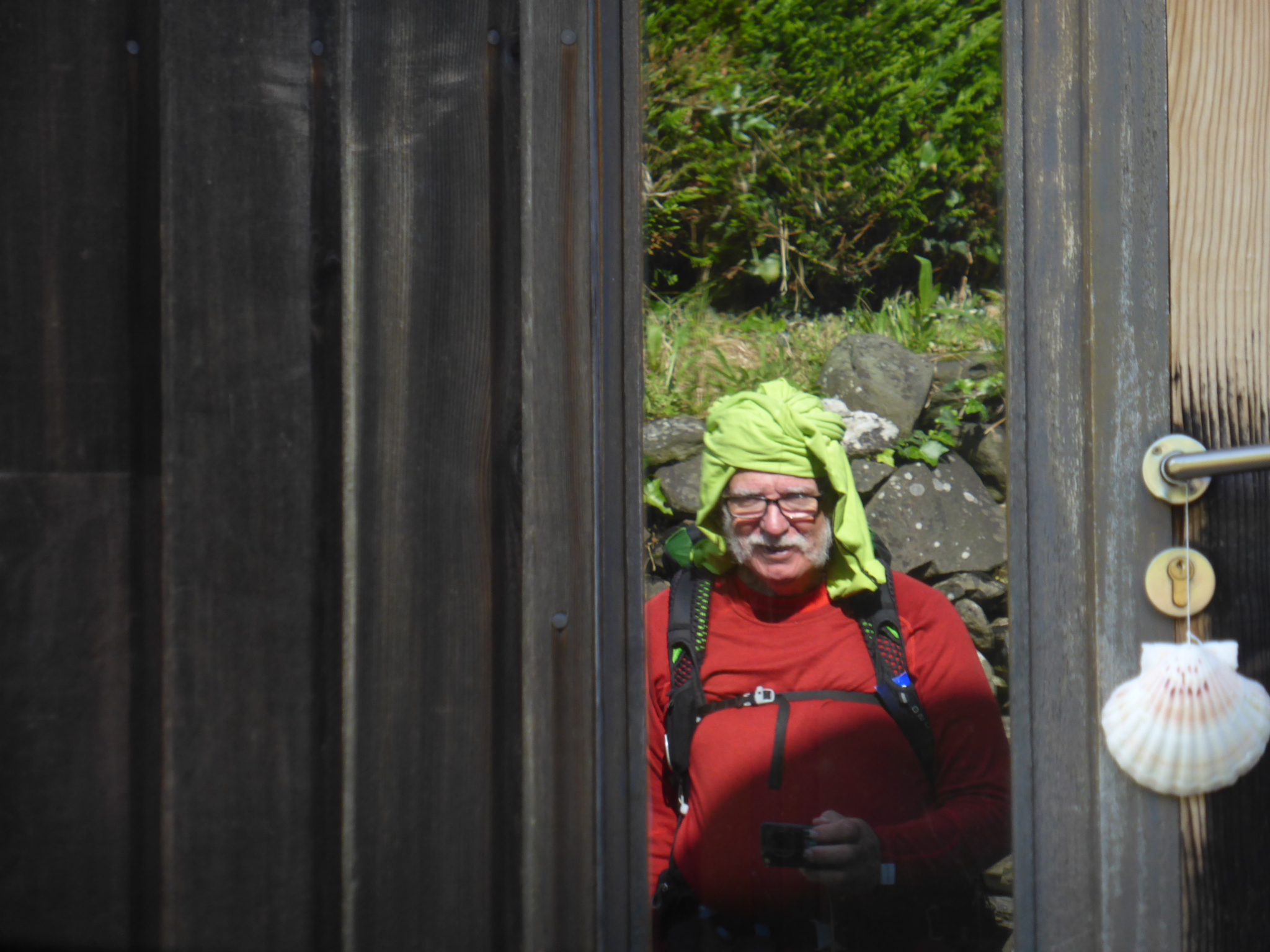
Provisional sun hat.
I then lost my camera. At this point I still had 3 months walking ahead of me and knew I would miss it badly. However, I resolved not to replace it. I was on a pilgrimage to Assisi because I sense the importance of St. Francis’ example in renouncing riches and privilege. So I decided to accept whatever losses came my way. Knowing, however, that the withdrawal symptoms from the loss of my camera would test my resolve, I took a wild strawberry and threw it into a crevice between stones in a church wall. This was a symbolic act of renunciation. The strawberry remained suspended in the opening, like my resolve. I photographed it with my phone. It was a loss after all, not a disaster. I was not to lose my phone for another three weeks. If I were to arrive in Assisi naked, like St. Francis, that would be just fine.
Assisi fades from view.
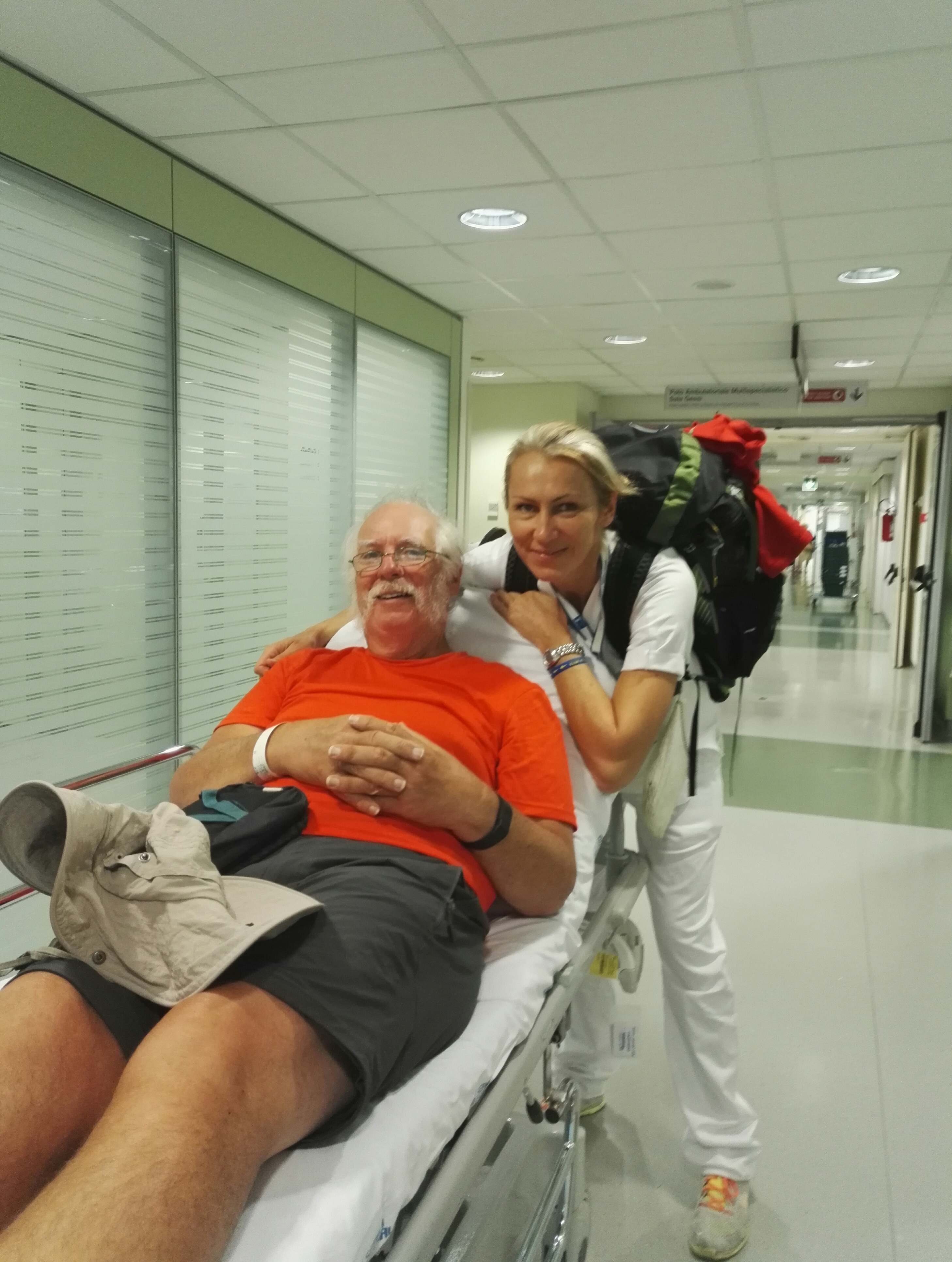
Paola, the A&E admissions sister at Lucca hospital puts on my rucksack.
Three and a half months after losing my camera, Assisi was in my sights when “where it was I meant to travel” began to drift away from me. I couldn’t ignore a range of symptoms related to my heart. Walking for so long has welded body, heart and mind as one. Slowly I am recognising that “where it was I meant to travel” is maybe not where it was I was meant to travel. So I have stopped walking and am resting by the Med, near Pisa, contemplating my own mortality. In particular I find the phrase “eternal rest” especially comforting. Like my camera, and my hats, and my telephone, I let go of a triumphal arrival in Assisi. Failing to complete my pilgrimage is no disaster.
Thank God for Amazon, though; my new camera arrives tomorrow.
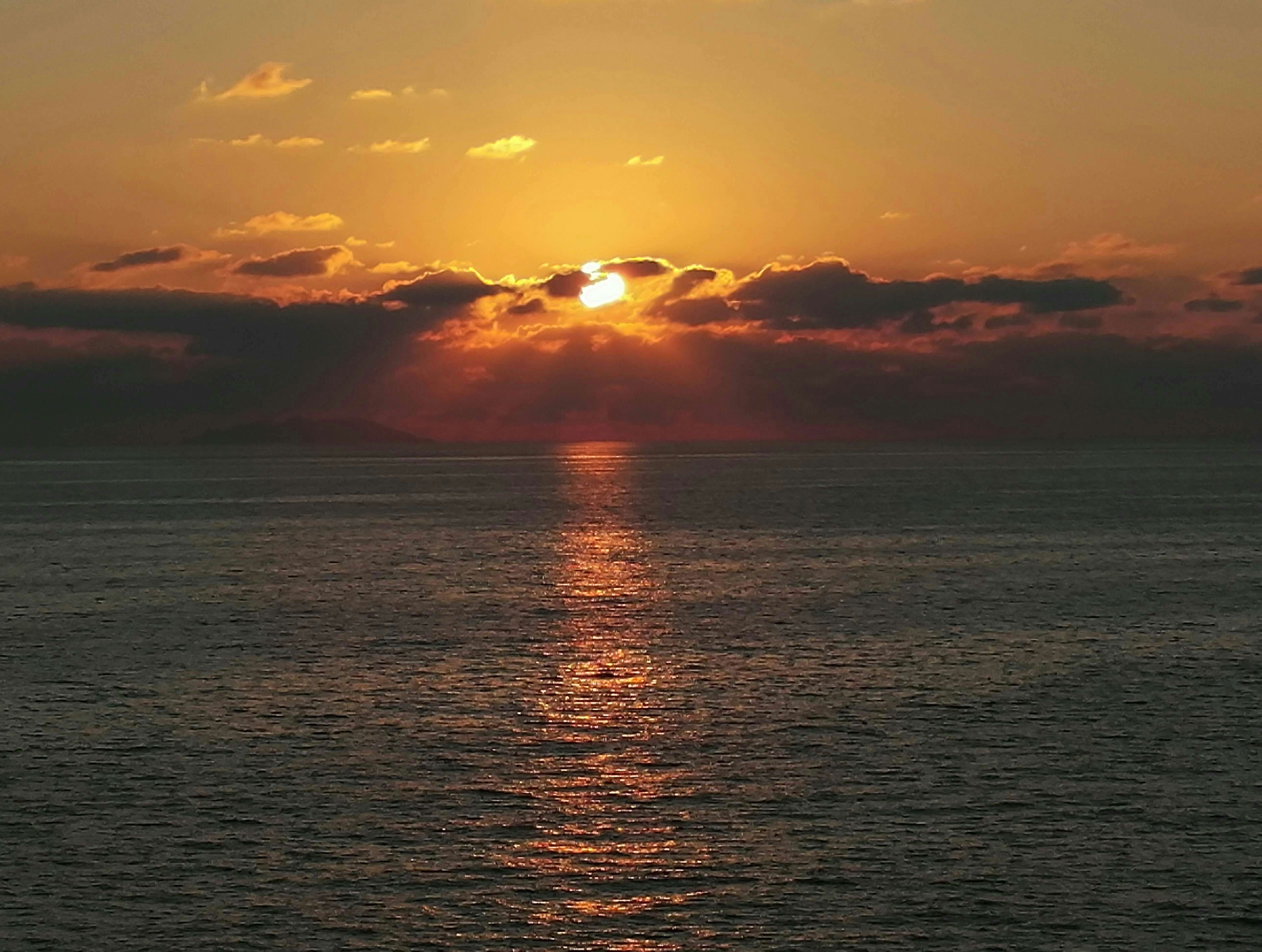
Sun setting on a pilgrimage.
